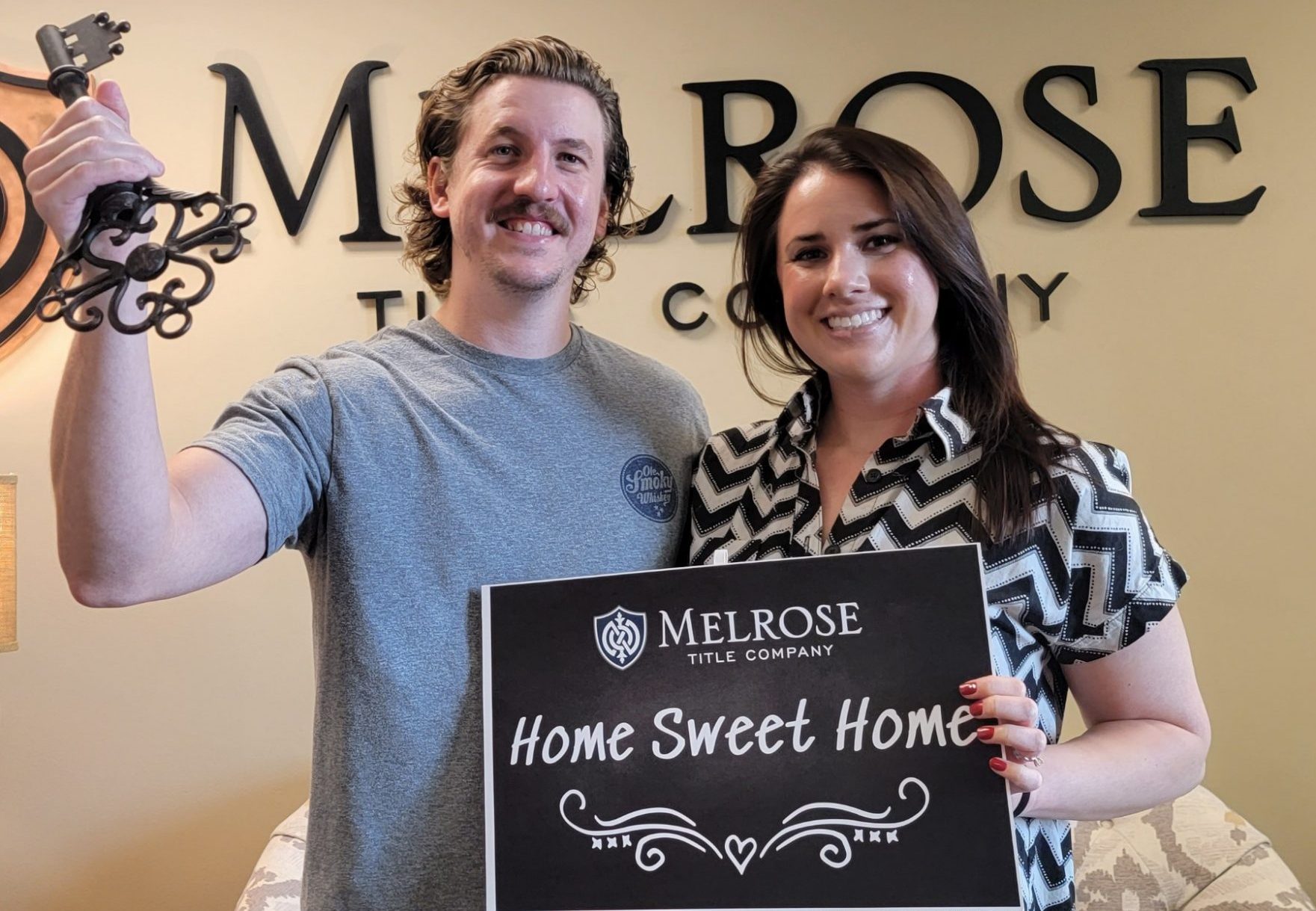Whether you’re a first time home buyer or experienced, purchasing a home is a complex (but rewarding) process that constantly changes. Here are a few tips to prepare you for your home buying experience.
Home Buying Tip #1: Assess Your Finances
How’s your credit? A personal assessment of finances is the first step in determining what funding options and limits you may have. Your credit score plays a part in the type of loan you qualify for. If you monitor your credit score through a site like CreditKarma, you probably know if your credit score is in the ballpark of where it should be and what activity appears. You can get a free credit report annually and it doesn’t negatively impact your score. Request a copy and look it over closely. There may be errors, credit cards that should not appear, or signs of fraudulent activity that you should address before you apply for a home loan. A loan officer can also help you assess your situation. (I can provide you with several lender recommendations.)
Do you have solid employment? Most lenders require consistent employment history. So if you recently changed jobs, rely on tips as part of your income, or you’re self-employed, you may have to meet some additional criteria. If you work from home and your employer is in another state, you may need to get a letter from your employer saying you can work from the new location.
How much money have you saved? Rarely can you buy a home without any money down. Most loans require a minimum of 3-3.5% down (in other words, financing 96.5-97%) and if you can put down more (10% or more), you can get more attractive rates. Even if you qualify for a 100% mortgage loan (usually USDA or VA), closing costs are not a part of the purchase price. You can ask a seller to pay your closing costs, they’ll usually eject it unless they are having problems selling. You may also need money to pay for inspections or for an appraisal. If you have more than what is minimally required, you may want to pay down points for a lower interest rate or set the money aside in case of future repairs or improvements.
Were you given money as a gift that you intend to use toward a home purchase? Believe it or not, where your money comes from matters to a lender. Gifts of money (yes, even wedding gifts) must be properly documented or it won’t be accepted toward a home purchase. If you’re expecting a gift of money, know the proper process before you receive the gift. There are some cool programs engaged couples can sign up for that allow wedding guests to contribute to a home fund. (Contact me and I’ll tell you more.)
Home Buying Tip #2. Make Your Wishlist
What are your must-haves and show-stoppers? Keep the list as small as possible and remember that needs aren’t the same as wants. You may want 4 flat acres of land, but if the perfect home sits on 1/4 acre next to 20 acres of protected land, will you pass it up? You may want a home without a pool, but if there is an above ground pool that can be removed will you consider it? When I create a custom search for a client, I try not to add a filter that eliminate potentially well-matched homes. For example, it’s better to ignore a home that has no outside workshop space rather than never see that perfect home that has a full basement workshop rather than one outside. I also expand the price cut-off a little beyond a client’s maximum, so if a home is overpriced it doesn’t get overlooked.
Consider different scenarios that might meet your needs. For example, if you plan to have multiple generations live together, can that be accomplished with a main home and a guest home? Is a lower level mother-in-law suite acceptable if there is a lower level entrance? What about a larger home with bedrooms on separate ends?
Home Buying Tip #3. Hire a Realtor to Look Out for You
A real estate agent IS NOT the same as a Realtor. A Realtor is a real estate agent who is an active member of the National Association of Realtors (NAR). We are held to a higher standard. We have to follow an ethics code of conduct and we adhere to the requirements of the association. So it’s a good idea to work with an agent who bares the title of Realtor. YOUR agent should understand your needs, act in your best interest, be professional, ethical, and knowledgeable. Not all agents are created equal. Don’t be afraid to ask an agent to show you a home or two before entering into a representation contract. But don’t expect them to devote hours of their time without an agreement either.
A buyer’s agent isn’t typically paid by the home buyer. When the seller hires an agent, the seller decides if part of the total compensation is shared between their agent and the agent who brings a buyer. The representation agreement between a buyer and the buyer’s agent is evidence the agent given permission to represent the buyer. It also secures what compensation amount the buyer has agreed to compensate their agent. (It’s important to tell other agents you are already working with someone to avoid any misunderstandings about who is entitled to a compensation.)
There ARE cases where a buyer may pay some or all of their agent’s compensation, however. For example, if a home is for sale “by owner” and that owner doesn’t agree to pay a compensation, in order to buy that home you will have to discuss your options to cover your agent’s compensation before crafting an offer. There are also cases where the seller hasn’t agreed to pay any or enough compensation to compensate the buyer’s agent. This is another case where you will have to discuss your options to cover your agent’s compensation. (Keep in mind that you and your agent can craft an offer that asks the seller to compensate you for your agent expenses.) Anytime compensation is potentially due from you as a buyer, you should discuss your options before you make an offer. On an active listing, you can see what the seller is currently offering to cover (it’s usually titled cooperative compensation or buyer agency compensation. You also have the option of notifying your agent in writing that you don’t want to entertain any properties that don’t cover your agent’s compensation.
Home Buying Tip #4. Ask for a Custom Search
Even if you’re not ready to pull the trigger, looking through some home listings and seeing prices is helpful. You’ll begin to see how long homes are staying on the market and how much over/under asking they sell for. You’ll expose yourself to many different styles and layouts of homes that may reshape what you want to buy. That’s why it’s smart to find an agent early in the process and why having a custom portal is handy.
Ask me to set you up a custom portal. A custom portal not only offers up-to-date searches anytime you want them, but it provides a place where you can save homes you like, and see what homes your agent recommends. Zillow and other 3rd party sites are a good place to find homes for sale by owner, but those sites also pull listings from our multiple listing service (MLS) and then don’t remove them when they are sold. The sites collect and sell your contact info, so don’t inquire about a property there… call me instead.
Home Buying Tip #5. Get Proof You’re Financially Qualified
Today, most sellers require a preapproval letter (or proof of funds, if offering cash) to accompany an offer to buy the property. It’s a good idea to shop for a lender early, so you know who you’re using and how much you can afford before you find something you love. Recommendations from friends can be useful. I can give you a few recommendations as well. In most cases, it’s best to pick someone local because most internet bankers can’t be reached outside of their business hours and you’re likely to get solicitation calls for the next 6 months! If you’re buying with cash, have proof of funds available, usually in the form of a bank statement of available funds (with all account information blacked out) or a letter from your investor.
Home Buying Tip #6. Have Realistic Expectations
Unrealistic expectations can kill a deal unnecessarily. For example, you shouldn’t overpay for a home, but if you offer an unrealistic lowball offer, you may offend the seller enough that they won’t agree to ANY deal. When it comes time for inspections, it isn’t realistic to expect everything in a 30 year old home to work like new. Your Realtor should be able to tell you the typical expected life of a roof, HVAC, hot water heater, etc. If you expect everything in a home to be like new, limit your search to newer homes and homes that claim to be fully renovated to “like new” condition. Otherwise, be prepared for home maintenance in the near future, and ask your agent if a home warranty policy might be right for you.
Home Buying Tip #7. Your Realtor is a Resource
When the sale is done, don’t delete my number from your contacts. Having a personal agent on speed dial has its benefits. For example:
I can provide copies of closing papers at tax time. Real Estate Agents are required to keep records of transactions for several years, so if you can’t find those closing papers at tax time, ask me for a copy.
I can help you determine if you’re close to eliminating PMI. When you are think you’ve made enough house payments to own 20% of your home equity, ask me for a Comparative Market Analysis. It’s not the same as an appraisal, but it gives you a ballpark of what your home might sell for. As soon as you own 20% of your home, you should see if you qualify to discontinue PMI. Sometimes a home appreciates in value while you’re making payments and you can get out of PMI sooner than you thought!
I’m a good resource when settling an estate. The death of a loved one is never easy and sometimes the work that’s required to settle an estate is overwhelming. I can provide names of charities that will take unwanted belongings, or companies that will haul away trash. I can also help you determine how to market a property based on your priorities and timeline.
I’m a secret weapon to getting friends and family members to move closer to you. Who knows how to sell a community better than me?! I can set up custom searches free of charge, offering your loved ones an easy way to check out home listings whenever they want without having to do anything or talk to anyone. I’m also a great person to introduce to someone you’re recruiting at work. (I have experience helping sell communities to physician recruits.)
I have connections. When you need to fix something on your home, chances are I know someone who provides that service and I have a YouTube DIY video playlist to refer to if you want to Do It Yourself. I also know a lot of people and businesses, which can come in handy when your friend is looking for a new job.




 Facebook
Facebook
 X
X
 Pinterest
Pinterest
 Copy Link
Copy Link





